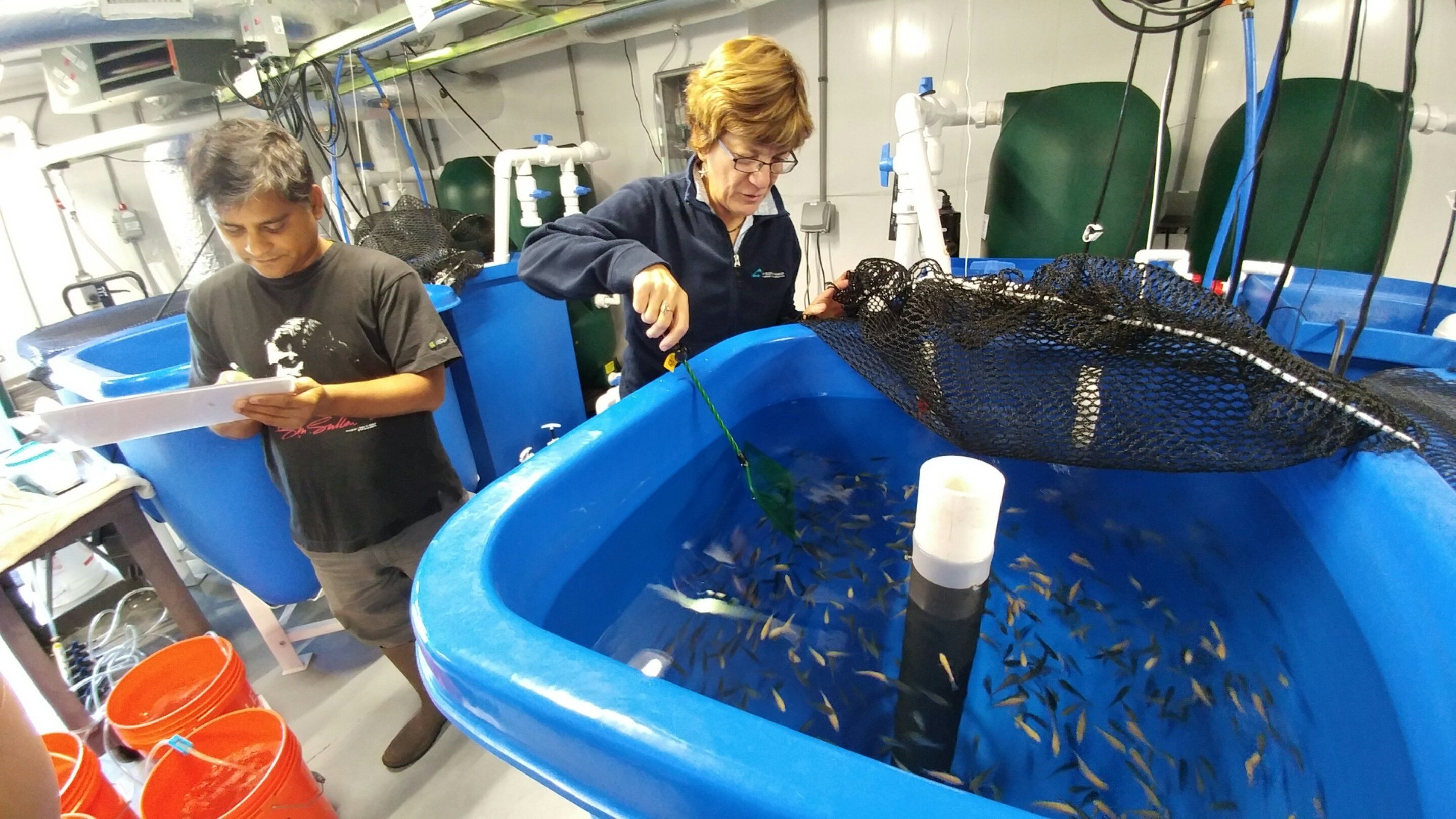Dartmouth scientists have created a more sustainable feed for aquaculture by using a marine microalga co-product as a feed ingredient. The study is the first of its kind to evaluate replacing fishmeal with a co-product in feed designed specifically for Nile tilapia. The results are published in the open access journal, PLOS ONE.
Aquaculture is the world’s fastest growing food sector, surpassing the global capture fisheries production in 2014. It provides more than 50 percent of the food supply to humans; however, it poses several environmental concerns. Aquaculture feed (aquafeeds) draws on 70 percent of the world’s fishmeal and fish oil, which is obtained from small, ocean-caught fish such as anchovies, sardines, herring, menhaden, and mackerel¬, that are essential to the lower end of the marine food chain. Analysts project that by 2040, the demand for fishmeal and fish oil will exceed supply. Aquafeeds also draw on large amounts of soy and corn from industrial farms, which pose other environmental concerns due to the use of fertilizers and potential runoff into rivers, lakes and coastal waters. In addition, aquafeeds may trigger nutrient pollution in aquaculture effluent, as fish are unable to fully digest soy and corn, which are major feed ingredients.
To address the environmental sustainability concerns regarding aquafeed, a Dartmouth team has been developing sustainable feeds for Nile tilapia, which examine the effectiveness of replacing fishmeal and fish oil with different types of marine microalgae. Marine microalgae are excellent sources of essential amino acids, minerals, vitamins, and omega-3 fatty acids, and can therefore, meet the nutrient requirements of fish. Omega-3 fatty acids are important for maintaining fish health; they also have neurological, cardiovascular and anti-cancer benefits to humans.






